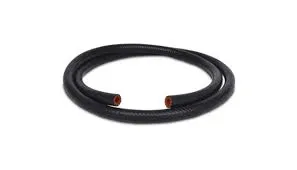Flexible Oil Hose for Efficient Fluid Transfer Solutions in Industrial Applications
Dec . 01, 2024 12:40 Back to list
Flexible Oil Hose for Efficient Fluid Transfer Solutions in Industrial Applications
Understanding Oil Hoses Essential Components in Industrial Applications
In various industrial applications, oil hoses serve as critical conduits for the transportation of different types of oil, including hydraulic fluids, lubricants, and fuels. The importance of these hoses cannot be overstated, as they are vital for maintaining the efficiency and safety of machinery and equipment across multiple sectors. This article aims to explore the construction, types, and applications of oil hoses, shedding light on why they are indispensable in today’s industrial landscape.
Construction and Materials
Oil hoses are typically constructed from a combination of materials that offer flexibility, durability, and resistance to abrasion and chemical degradation. The outer layer is made of synthetic rubber or thermoplastic elastomers that protect against environmental factors and physical wear. Meanwhile, the inner lining is designed to withstand the operational pressures and the chemical composition of the oils being transported. Reinforcement layers, often made from steel wire or textile braids, enhance the hose's ability to handle high pressure and extend its lifespan.
Additionally, the quality of the materials used in manufacturing oil hoses is crucial. Hoses made from high-quality materials are more resistant to cracking, leaking, and other forms of failure that could lead to costly repairs and environmental hazards. Companies often adhere to strict international standards to ensure their products' durability and reliability.
Types of Oil Hoses
Oil hoses come in various types, each suited for specific applications. Some of the most common types include
1. Hydraulic Hoses These hoses are designed to carry hydraulic fluids at high pressures. They are often used in construction and agriculture machinery, where they facilitate the operation of hydraulic systems.
2. Fuel Hoses These hoses allow for the safe delivery of fuels such as gasoline, diesel, and biodiesel. They are used in vehicles, fuel storage systems, and refueling stations, ensuring that fuel is transferred efficiently and safely.
3. Oil Suction and Discharge Hoses These are used in industrial settings for transferring oils from one location to another. They are commonly used in oil refineries, chemical plants, and marine applications.
oil hose

4. Specialty Hoses Some industries may require tailored solutions, leading to the development of specialty hoses designed for unique applications, such as high-temperature or chemical-resistant environments.
Applications Across Industries
The robustness and reliability of oil hoses make them invaluable across several industries, including
- Automotive In vehicles, oil hoses are critical for oil systems, facilitating the lubrication of moving parts to ensure optimal performance.
- Construction Heavy machinery relies on hydraulic systems utilizing oil hoses to power various functions, highlighting their importance in construction applications.
- Marine Oil hoses play a crucial role in ship maintenance and fueling operations. They are designed to withstand harsh marine environments and continue delivering performance.
- Oil and Gas In this sector, oil hoses are essential for drilling, transporting crude oil, and delivering refined products, where safety and reliability are paramount.
Safety and Maintenance
Given the critical role that oil hoses play in safe operations, regular maintenance is essential. Inspecting hoses for signs of wear, cracks, or leaks can prevent catastrophic failures that could lead to spills or accidents. Moreover, adhering to manufacturer guidelines regarding installation and usage will enhance the longevity and effectiveness of these hoses.
In conclusion, oil hoses are fundamental components that facilitate the safe and efficient transfer of oils across various industries. With advancements in material science and engineering, modern oil hoses are designed to meet the evolving demands of industrial applications, ensuring safety, efficiency, and compliance with environmental regulations. Investing in high-quality oil hoses and maintaining them properly not only enhances operational efficiency but also contributes to a safer industrial environment. Whether in automotive applications, construction, or maritime operations, the value of oil hoses is undeniable.
